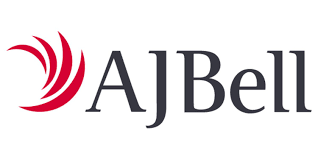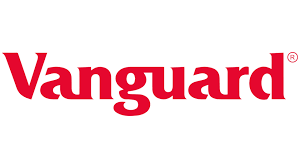Best Private Pension Accounts UK 2025: Ultimate Guide
Discover the best private pensions in 2025. Our in-depth comparison will help you find a safe place for your hard-earned cash.
Updated:
When you purchase through links on our site, we may earn an affiliate commission. Here's how it works.

Choosing where to put your retirement savings is probably the most important financial decision you’ll ever make. And with the UK’s State Pension system in a pretty poor way, many of us may need to rely on private pensions for a decent quality of life in old age.
If you choose the right provider, you could enjoy a comfortable retirement filled with holidays, relaxation, and fun with grandchildren. Make the wrong decision, however, and the future could look rather bleak.
But how do you know which pension company to choose? In this guide, we reveal our 8 top picks and explore key considerations when selecting a provider. Whether you’re self-employed, a high earner, or simply want to top up your savings, there should be something for everyone on our list of the eight best private pensions in the UK
Now, let’s compare each of these top private pension companies' plans in detail to help you make an informed decision.
Provider | Best for | Expert score | Annual fees | Minimum contributions |
|---|---|---|---|---|
Hargreaves Lansdown | Expert management | 4.9/5 | Approximately 0.45% | £25 per month or a lump sum of £100 |
AJ Bell | Confident investors | 4.8/5 | Approximately 0.25% | £25 per month or a lump sum of £500 |
Interactive Investor | Large investments | 4.8/5 | Monthly fee of £5.99 for pensions under £50,000, and £11.99 for higher amounts | N/A |
PensionBee | Ethical savings | 4.7/5 | 0.28-0.95% | N/A |
Fidelity | Transparent fees | 4.7/5 | 0.2-0.35% | £20 a month |
Nutmeg | Forward-thinking investors | 4.7/5 | 0.41-0.66% | Initial investment of £500 |
Vanguard | Low-cost investments | 4.6/5 | 0.06-0.79% | £100 per month or a lump sum of £500 |
Moneyfarm | High earners | 4.6/5 | 0.35-0.96% | Initial investment of £500 |

1. Hargreaves Lansdown: Best for expert management
Our expert score: 4.9/5
Pros
- More than 550,000 clients
- Provides £48.9 billion worth of pensions
- Research tools and retirement planning features
Cons
- Higher fees, especially for larger portfolios
With more than 550,000 clients, Hargreaves Lansdown is a market leader in the pensions industry. For example, its Ready Made Pension Plan offers expert management with relatively little effort.
While the company charges higher fees than some of its rivals, it is renowned for its customer service and educational resources. Recent article topics include pension scam losses, shares to watch in 2025, and the importance of knowing where a fund is invested.
More skilled investors can also access thousands of funds and shares, while benefiting from easy-to-understand planning tools. You can save from just £25 per month, and there isn’t a charge for setting up investments.
Why buy? Expert verdict
As well as offering excellent products, Hargreaves Lansdown is an industry trailblazer. The company’s experts regularly offer trusted advice to members of the press on key issues affecting retirement savings.

2. AJ Bell: Best for confident investors
Our expert score: 4.8/5
Pros
- More than 2,000 investment funds
- See investments in real time
- Low annual fees
Cons
- Some funds not designed for beginners
AJ Bell offers a low-cost, flexible way to manage your retirement savings, providing investors with access to more than 2,000 funds, shares, and trusts.
Funds are grouped as Pension Builder, Cautious, Adventurous, and Responsible Growth. While the first three have annual charges of 0.45%, the latter imposes fees of 0.6%.
Although you can save up to £60,000 per tax year, investment options begin at just £25 per month, with lump sum payments starting at £500. Customer support is available online or through a mobile app, with live UK pricing and 24/7 access.
Why buy? Expert verdict
We were pleased to see that AJ Bell has a rating of 4.9 on Trustpilot, with 84% of reviewers awarding it the full 5 stars. This could make the company a great option for those who value customer service, as most companies receive just 3 or 4 stars.

3. Interactive Investor: Best for large savings
Our expert score: 4.8/5
Pros
- Flat-fee pricing
- Open an account in less than 15 minutes
- Focus on ethical investments
Cons
- Not cost-effective for small pots
- Less beginner-friendly
Interactive Investor offers access to a broad range of pension funds managed by industry experts, with a strong focus on ethical investments. Unlike many providers, the company takes a flat monthly fee, rather than charging a percentage on customers’ pension pots. This can offer real value for savers with larger portfolios, on which percentage-based fees can soon add up.
For example, its Essentials Plan costs £5.99 per month for balances up to £50,000, while the Investor plan is £11.99. According to the company’s website, you can set up a fund in under 15 minutes.
Why buy? Expert verdict
Interactive Investor has more than 450,000 customers and over £70 billion in assets under management. This makes it a great choice for those who prefer the reassurance of saving with a big-name brand.

4. PensionBee: Best for ethical savers
Our expert score: 4.7/5
Pros
- Ethical and Shariah-compliant investments
- Easy-to-consolidate multiple pensions
- User-friendly app
Cons
- Limited financial advice
With more than 275,000 customers, PensionBee specialises in retirement consolidation, helping savers merge former workplace pensions into a single, easy-to-manage plan. The company also offers a large range of options for those who want to make responsible investment choices with their savings.
For example, its climate plans actively invest in companies looking to reduce their carbon emissions. Businesses included in the portfolio must commit to reducing fossil fuel investments and adopting a net-zero strategy.
As a potential negative, the company doesn't offer especially extensive financial advice.
Why buy? Expert verdict
PensionBee could be a great option for members of the Islamic faith, with its Shariah-compliant investments approved by an independent advisory board.

5. Fidelity: Best for transparent fees
Our expert score: 4.7/5
Pros
- Access to thousands of funds
- Save with just £20 a month
- Advice available 6 days a week
- Dedicated Relationship Manager for those investing more than £250,000
Cons
- Platform design is dated compared to newer rivals
With 50 years’ experience and more than 1.6 million customers, Fidelity’s personal pension sits between a DIY platform and an expertly managed pension. It provides investors with access to thousands of funds and also offers guidance through ready-made portfolios. In fact, those who invest more than £250,000 receive their own Relationship Manager.
Furthermore, the company offers expert webinars, online calculators, and educational tools. However, some users complain that the app and website appear outdated.
Why buy? Expert verdict
Fidelity could be ideal for those who favour a transparent pricing structure, as it sets fees based on the level of advice you need.

6. Nutmeg: Best for forward-thinking investors
Our expert score: 4.7/5
Pros
- Free expert advice
- Strong focus on diversification
- Modern investment approach
Cons
- Higher fees than DIY platforms
Nutmeg focuses on expert management, with its team monitoring your portfolio on your behalf.
The company also has a strong interest in thematic investing—a long-term strategy dependent on emerging trends, such as energy and artificial intelligence (AI). Additionally, its socially responsible portfolios focus on issues such as carbon emissions and water stress.
Nutmeg also allows you to choose from 10 risk levels to ensure you find the right product for your stage in life. However, this expertise comes at a price, with some investments charging fees of up to 0.66%—significantly higher than some other platforms on our list.
Why buy? Expert verdict
Thematic investments could be ideal for those with a strong interest in tech. AI is undeniably a growing sector, with the latest government research finding that this field attracts £200 million per day.

7. Moneyfarm: Best for higher earners
Our expert score: 4.6/5
Pros
- Invest up to £100,000 per year
- Fees from just 0.35%
- Sustainable options available
Cons
- Limited investment range
Moneyfarm tailors its offering for those new to investing. For example, its online questionnaire can help you determine the right fund and the level of advice you need.
If you’re ethically minded, you can save in companies with a commitment to environmental, social, and governance (ESG) requirements.
You can invest up to £100,000 per year, and the provider’s website lets you see a detailed breakdown of your asset allocations by sector and geography.
Why buy? Expert verdict
This company’s relatively low fees of 0.35% could be a huge lure. According to charity MoneyHelper, management charges for pensions typically stand at approximately 0.75%.

8. Vanguard Personal Pension: Best for low-cost investing
Our expert score: 4.6/5
Pros
- More than 50 million customers
- Low platform and fund fees
- UK-based customer service
Cons
- Difficulty in searching for ethical credentials
With annual platform fees beginning at 0.06% and having 50 million investors, Vanguard allows you to save into different types of funds, including a Do-It-Yourself and Managed Personal Pension.
All funds come with a UK-based customer service team, as well as a personalised risk profile. Be aware, however, that some reviewers have reported problems in accessing data on ethical investments.
Why buy? Expert verdict
Vanguard is famously a market leader when it comes to reasonable fees. It's one of the cheapest options on the market, making it particularly attractive for long-term savers who don’t want their profits eaten up by excessive charges.
As of April 2025, the company claimed its low-cost charges could collectively save its customers $350 million per year.
Types of private pension: What you need to know
Like most personal finance products, private pensions come in various guises. The main types include defined contribution, defined benefit, stakeholder, and SIPPs.
Defined contribution
Under this system, you (and sometimes your employer) invest money into your pension pot, with the value of your fund determined by how much you've paid in and how well your investments perform.
You can usually take 25% tax-free at the age of 55 (rising to 57 from 2028). You can then use the remainder to provide yourself with an income in old age. Options for later-life savings include buying an annuity (which guarantees a regular income for life) or gradually drawing from your savings.
Defined benefit
Also known as final salary or career-average pensions, these are typically more generous than most pensions. Instead of relying on pension investment performance, they base your retirement payout on how long you’ve worked for your employer.
SIPP
A Self-Invested Personal Pension (SIPP) offers more control over your retirement savings, with investments including stocks, bonds, and funds. These products are especially popular among experienced investors who prefer to manage their own portfolios.
Stakeholder
Stakeholder pensions offer a simple, low-cost, and flexible way to save for old age, with the value of your fund based on the amount you pay in. However, these products must meet certain government standards, such as offering low minimum contributions, capped charges (usually no more than 1.5% a year), and flexible terms. Stakeholder pensions are typically convenient for the self-employed and low earners.
What type of private pension do I need?
The right type of private pension for you will depend on your employment status, income, and financial knowledge.
If you're self-employed, a private pension could be essential for retirement planning, as those who work for themselves don’t typically benefit from a staff pension with employer contributions.
If you're employed, you might already be enrolled in a workplace pension. However, this doesn’t stop you from opening an independent pension to boost your retirement savings, especially if you’re aiming to retire early or want more investment choices.
Even if you're not currently working, perhaps as a stay-at-home parent, you can open a private pension. Those not paying Income Tax can contribute up to £2,880 a year, which rises to £3,600 following government tax relief. Likewise, you can open a private pension for a child, giving them a valuable head start in life.
It’s also wise to consider the level of control you want over your savings: would you prefer to manage your own fund or have a professional do this on your behalf?
How private pensions work
Your pension provider typically invests your funds in assets such as shares and bonds, with the aim of growing your money over time. Although all pots are different, most share common features.
Private pensions typically accept regular or one-off payments. For example, you can usually set up a monthly Direct Debit or make a lump-sum payment at the end of the tax year, with the amount depending on your savings.
If you save into a private pension, the government will top up your contributions based on your Income Tax bracket. These levels are currently 20% for Basic Rate taxpayers, 40% for Higher Rate payers, and 45% for Additional Rate payers.
For example, the government adds 20% for Basic Rate taxpayers, meaning pension savers receive £100 for every £80 they invest. Although Basic Rate taxpayers usually receive automatic relief, Higher and Additional rate savers may need to claim their extra benefits by filling in a Self-Assessment form.
All UK residents can open a private pension from the age of 18, although you may no longer be able to take out a new plan—or make further contributions—once you reach 75. You’ll also have control over the final destination of your pension.
Who are the biggest private pension providers in the UK?
Determining the biggest-name providers isn’t easy. However, recent research from The Telegraph and research firm Statista gives a good indication.
According to findings, investment firm Quilter comes on top, offering a flexible retirement account for those seeking financial advice. PensionBee took second place, thanks to relatively low fees. Moneybox came third, charging 0.45% on pots under £100,000 and 0.11% above that, plus a fund fee of up to 0.64%.
When it comes to SIPPS, Morgan Lloyd scored 100% for satisfaction, despite only being available through advisers.
Other major providers include Aviva, Legal & General, M&G, and the Universities Superannuation Scheme. The latter has more than 400,000 members, comprising active and retired academic staff.
How to choose the best pension company
When you’re looking for a pensions company, consider the following:
Customer support levels
Retirement can be a challenging time, both financially and emotionally, so be sure the company offers reliable online and phone support if you have any questions.
Contribution rules
Some pensions accept contributions of just a few pounds a month, while others set far higher minimums. Check whether you can make monthly payments, one-off top-ups, or transfer existing pensions.
Think long term
Consider how easy it is to transfer to other pensions, switch investments, or access your money. Some platforms are more flexible than others when it comes to managing your account and making changes over time.
How we created this list: Factors we considered
When compiling this list, we assessed satisfaction ratings from customer reviews and trade publications. Additionally, we judged companies’ terms and conditions and evaluated the following:
- Fees: While we acknowledge that all pensions incur fees, we wanted to ensure that these fees are reasonable and that readers understand what they’re paying for.
- Customer feedback: We reviewed consumer service forums, assessed colleague professionalism, and evaluated support levels for those with complaints.
- Industry reputation: We thoroughly reviewed key industry publications to determine how other experts rate the companies in our rankings.
- Online navigation and app interface: Our specialists awarded extra points for companies with clear online usability and strong apps.
- Diversification: We also looked for funds with a strong split across sectors and geographies. This way, you won’t lose out too much if a particular area takes a hit due to market volatility.
Best private pension UK FAQs
Can I have more than one private pension?
Can I transfer pensions between providers?
What happens if I stop paying into my pension?
Conclusion
A private pension is a vital part of planning for retirement, giving you flexibility and control over your retirement savings. Whether you want to manage investments yourself, prefer expert advice, or need flexibility as a self-employed saver, there’s a private pension out there for you. That said, you should take time to compare fees, investment choices, and service quality.
Although saving early is always your best bet, there’s still time to set something aside for your golden years. Remember, better late than never.
